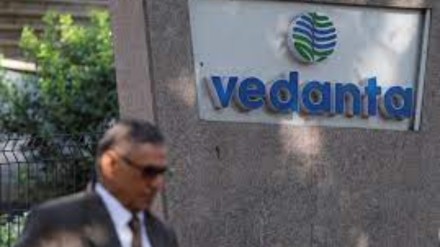The overwhelming support from investors for Vedanta Resources’ (VRL) proposal to extend the maturity period of bonds worth $3.2 billion is a respite from the debt overhang for the London-headquartered company. However, is the firm, helmed by industrialist Anil Agarwal, out of the woods?
Not yet, say industry watchers.
The bondholders’ consent is a significant step in the overall game plan, but a lot of clarity, including on the restructuring of the total debt, needs to emerge, they say.
On Wednesday, VRL, the parent company of Indian mining major Vedanta, received bondholders’ approvals to extend the maturity period of four series of bonds worth $3.2 billion due in the next three years. The bondholders approved extension of the deadline with votes ranging between 97% and 100% in favour, against the minimum 66.7% required.
“With over 97% of the bondholders providing their consent to extend the maturity of $3.2 billion of its outstanding bonds, there is some respite for Vedanta. However, the troubles are far from over. Even though the maturity period is extended, it comes at high cost. Further, the group’s debt is far higher than the dues of the bondholders,” Sakate Khaitan, senior partner at Khaitan Legal Associates, said.
“It would be imperative to understand the overall terms of the group restructuring scheme to assess how the total debt of the group is being dealt with and if Vedanta is out of the woods. It, however, provides much needed breathing room for Vedanta to deal with its debt overhang,” Khaitan added.
VRL has a debt maturity of $1 billion in 13.875% bonds due in January 2024 and another $1 billion due in August 2024. Furthermore, it has $3.1 billion debt obligation in FY25.
“While this approval is being seen as a significant achievement for the group, particularly after several failed attempts to reduce its financial burden, substantial concerns could still persist regarding the overall financial soundness of the company,” Ketan Mukhija, partner at Dentons Link Legal, said.
“The election to restructure debt at a whopping 18% per annum interest rate does raise a flag, especially in the wake of the company’s lowered credit ratings by S&P and other institutions.” This makes its imminent financial decisions crucial in shaping the company’s long-term stability, Mukhija added.
According to Natasha Treasurywala, partner, Desai & Diwanji, the bondohlders’ consent is a positive development that will take the pressure off the group for the foreseeable future. “It gives them the opportunity to put in place a robust action plan for the next two years, including in relation to monetisation of various assets to enable repayments to lenders,” Treasurywala said.
According to the restructuring plans, VRL also offered to pay $779 million by early February for the three bonds ù due in January 2024, August 2024 and March 2025 — which would be part-funded from through proceeds of a new $1.25-billion fund raise.
